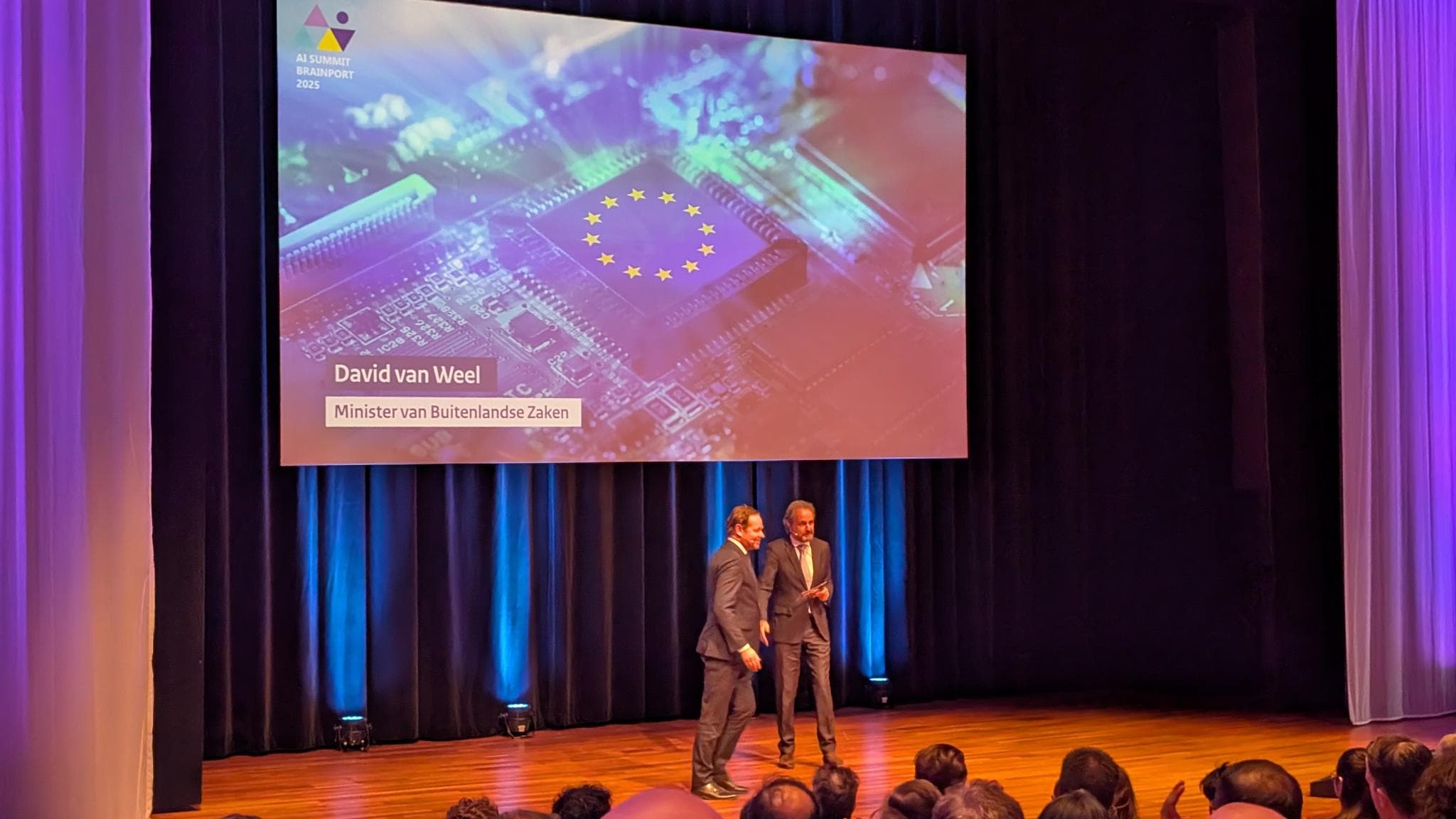Netherlands to draft an AI strategy to shape global governance
Foreign minister David van Weel at AI Summit Brainport: “AI will be part of everything we do in an international context.”
Published on November 13, 2025

David van Weel and Carlo van de Weijer on stage in the Eindhoven Evoluon
Bart, co-founder of Media52 and Professor of Journalism oversees IO+, events, and Laio. A journalist at heart, he keeps writing as many stories as possible.
At the AI Summit Brainport, an event on artificial intelligence in Eindhoven, Dutch foreign minister David van Weel announced that the Netherlands is among the first countries in the world to develop an international AI strategy. The initiative aims to make Dutch policy on artificial intelligence “future-proof” and to ensure that AI is embedded in the country’s diplomatic, economic, and security frameworks.
“We are working across the Dutch central government to develop future-proof AI policy for the Netherlands,” Van Weel said. “And I’m also working closely with other ministries to develop an international AI strategy. We’re one of the first countries working on this, recognizing that AI will be part of everything we do in an international context. And that requires diplomatic efforts in Brussels, in multilateral institutions, and in the context with like-minded partners.”
According to Van Weel, this strategy will connect domestic AI policy with international diplomacy - in the European Union, NATO, and the United Nations - to shape how AI technologies are governed globally. The Netherlands wants to be a frontrunner in defining responsible use, rather than waiting for global powers such as the United States and China to set the tone.
Balancing innovation and regulation
Van Weel emphasized that Europe must find a better balance between innovation and regulation, warning that Brussels risks becoming a “Silicon Valley of regulation.” While rules on ethical AI are essential, he said, they should not slow down the continent’s ability to innovate.
“The Netherlands wants to accelerate, but do it safely,” he said, pointing to earlier efforts such as RE-AIM, the Dutch-Korean initiative on responsible AI in the military domain. That project, launched in 2023, brought together governments, industry, and civil society to discuss guardrails for autonomous systems. One of the resulting UN resolutions on AI in defense was adopted just last week by the European Union.
Security and ethics intertwined
AI, Van Weel warned, is already transforming international security. He cited the AI-controlled drones that recently entered Belgian airspace as an example of how fast technology is moving. In Ukraine, he noted, AI systems are used daily to analyze satellite images, identify enemy positions, and shorten procurement cycles from years to days.
While such innovations strengthen defense, they also raise profound ethical and security dilemmas. “Will humans remain in control, or will the machines take over?” Van Weel asked. “And how can we be held responsible for life-and-death decisions made by algorithms?”
The minister compared the rise of AI to the invention of the atomic bomb: a transformative technology whose long-term consequences are still unclear. Unlike nuclear weapons, however, AI’s impact unfolds gradually, making it harder to anticipate and regulate.
Diplomacy for the digital age
Van Weel’s main message: AI is no longer a niche issue for technologists but a core concern of foreign policy. The Netherlands, he said, intends to lead by example, combining its technological strength, ethical standards, and diplomatic networks to shape global AI governance.
“Joining forces on tech diplomacy will make the Netherlands strong,” he concluded. “AI has changed the world, and what is not an option is standing still.”
